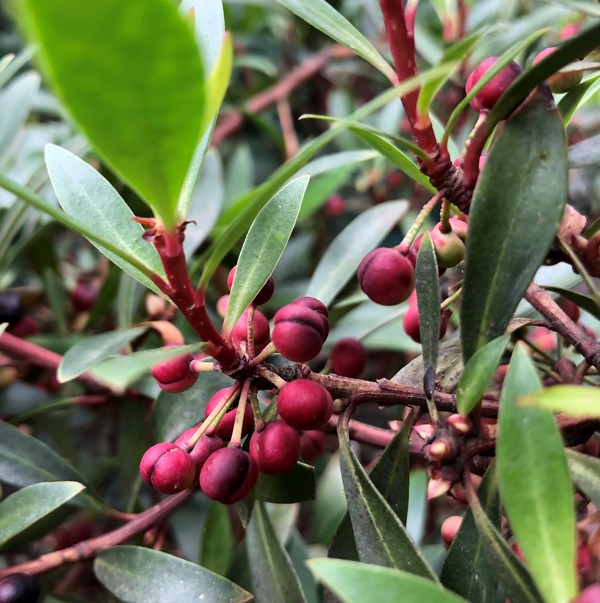Jade Bourenane Vieira

Since my bachelor's degree, I have maintained an interest in plants' stress response. Today a Master student, I have come to the University of Melbourne to complete my master's final internship. We are currently investing the Tasmanian pepper's response to biotic stress. Specifically, we are trying to understand how biotic stress impacts the flavonoid biosynthesis pathway in Tasmania lanceolata.
Also known as Mountain pepper, it has long been used therapeutically and nutritionally, particularly its leaves and fruits. However, many of its properties remain poorly explored in scientific research nowadays. It is notably rich in polyphenol compounds that are known to act as antioxidants. These are broadly responsible for its anti-inflammatory and anti-viral response which gives it efficient resistance to stress. By using a combination of genomic, transcriptomic, and biochemical tools we hope to unlock the genetic pathway responsible for its resistant abilities and encourage its potential in providing a natural and sustainable solution to many of today's environmental and medical challenges.
For more information you can contact me here.
